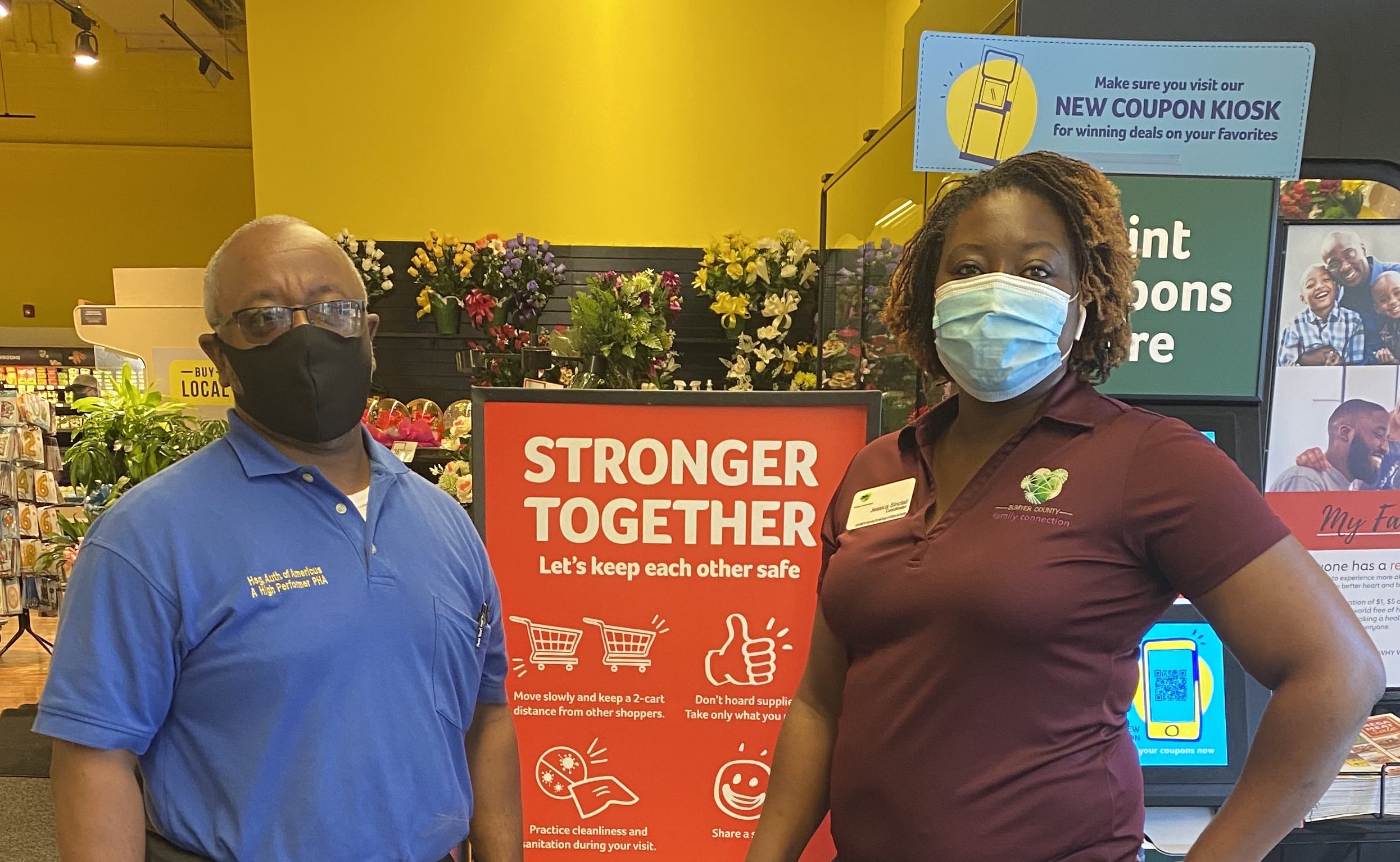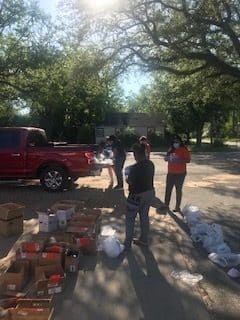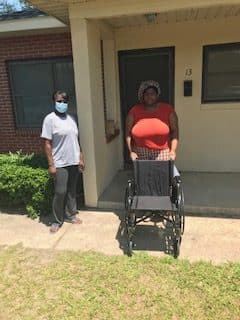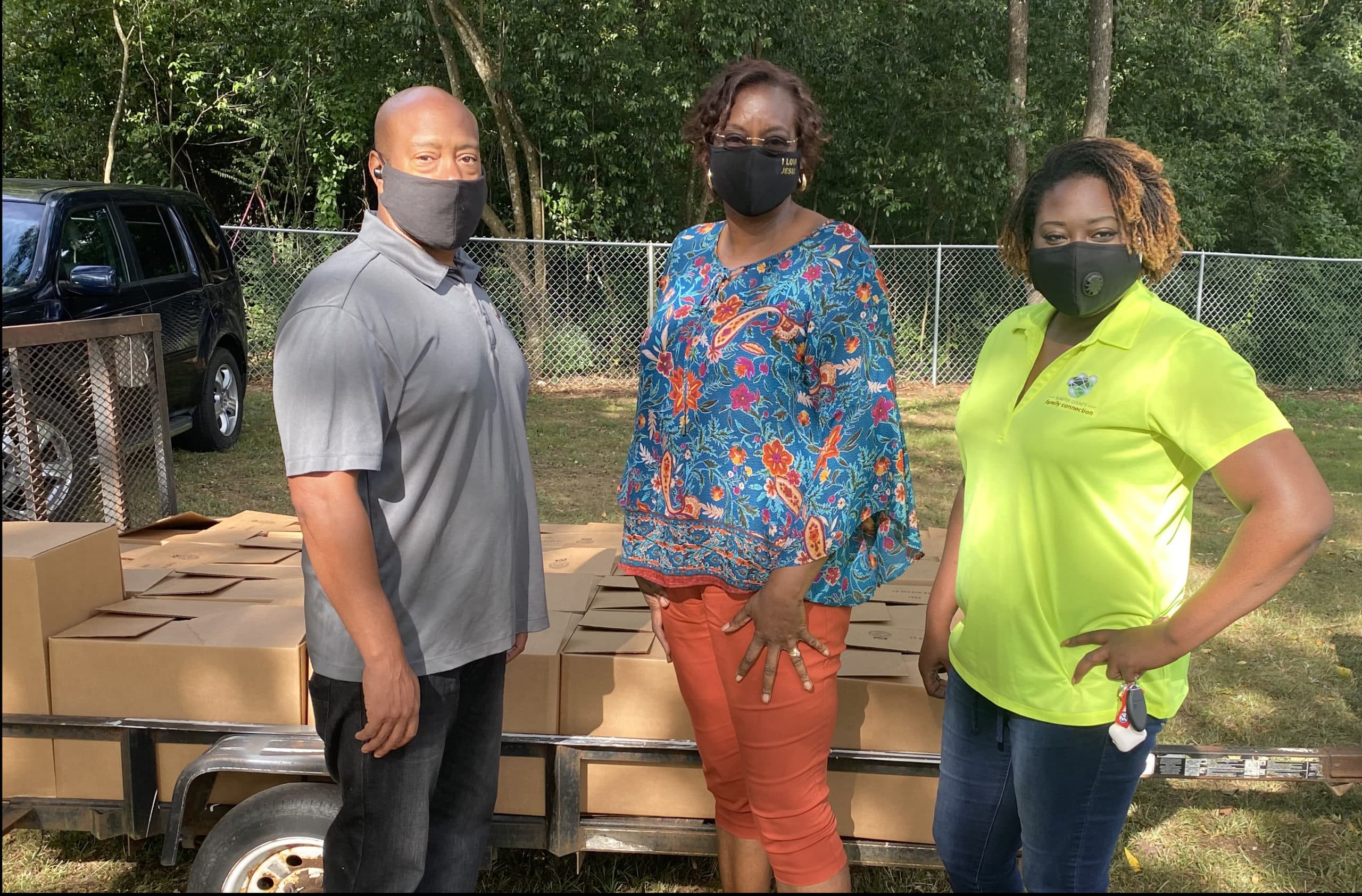Amerigroup Awards $10,000 to GaFCP to Support Relief Efforts in Southwest Georgia Counties Impacted by COVID-19
Print This Post
When COVID-19 arrived this spring, southwest Georgia was among the hardest-hit areas in the state—and in the country. Six months later, residents in this region are still struggling to overcome the financial and health impacts of the pandemic.
To meet these continuing needs, Amerigroup has awarded $10,000 in grant funding to Georgia Family Connection Partnership (GaFCP) to support the relief efforts of 11 county Collaboratives. The funding was combined with a $100,000 grant provided by the Arthur M. Blank Family Foundation.
“At Amerigroup, we’re committed to supporting our members and communities as we collectively work through these unprecedentedly difficult times,” said Amerigroup Georgia Medicaid Plan President Mel Lindsey. “COVID-19 has cast a glaring light on how those living in economically disadvantaged communities without reliable access to fresh, healthy food, shelter, and other essential items are bearing the heaviest burden of the pandemic. Through our partnership with GaFCP, we’re able to provide communities throughout Georgia, particularly in those southwest counties which have been hard hit, with access to vitally important resources that promote good health.”
“This funding provided a stir that reminded people about the need to give, and there have been many individuals and organizations who have stepped up to help our community,” said Janet Sheldon, executive director of Colquitt County Family Connection. “The need is perhaps greater than ever. There does not seem to be any end in sight.”
These grants have allowed Georgia Family Connection Collaboratives in Calhoun, Colquitt, Crisp, Dougherty, Early, Lee, Mitchell, Randolph, Sumter, Terrell, and Worth counties to assist some of the state’s most vulnerable populations that have been disproportionately impacted by the COVID-19 pandemic.
“While providing food at one time to the masses takes less time and coordination, we wanted to avoid redundancy in food distribution and provide services for the underserved,” said Crisp County Community Council Executive Director Sherry Evans. “Services often don’t get to the mentally ill and senior citizens due to isolation, especially during the pandemic.”
The Collaboratives are continuing to work with longtime partners—and establishing new partnerships—to address basic needs of children and families like food access and assistance with rent, mortgages, and utility bills. Relief efforts have also provided access to domestic abuse services, mental health services, and telehealth services.
“Being able to apply for and receive additional funding to directly impact my little county was such a blessing and we’re all eternally grateful,” said Alicia Varnum, Calhoun County Family Connection coordinator. “We can learn something new every day if we keep our eyes open for those who are in need—and we’re always looking.”
Jessica Sinclair, coordinator for Sumter County Family Connection, said the relief efforts have led to even closer ties between Collaboratives and the communities they serve.
“Assisting with the food distributions allowed staff to meet residents, observe living situations, and hear needs expressed from those being served,” said Sinclair. “We’re now better able to describe those needs from a community-wide perspective.”
Partners in Calhoun County Band Together to Help Residents
Calhoun County Family Connection distributed 70 grocery vouchers to residents who have lost their jobs, wages, or income due to COVID-19. “In a county of 5,000 people with only one grocery store, COVID-19 was almost as destructive as Hurricane Michael in 2018,” said Varnum. “The challenges in our county are many, but everyone pulled together on this project—as they always do—and quickly provided the names of those in need.” New and returning regional partners attended the Collaborative’s virtual meeting in August. “Our relief efforts have allowed us to re-introduce ourselves within the community,” she said. “I’ve had several calls from folks who are interested in our Collaborative, and we hope this will lead to more people at our table.”
Food Distribution Expands in Colquitt County
The grant funding in Colquitt County was the impetus for Colquitt County Food Bank to help get food to other local organizations such as Crossroads Gospel Rescue Mission, Serenity House shelter for survivors of domestic violence, and Sha Mission, which takes food to rural Hispanic families with no transportation. “This project has been successful in bringing together different charities that are all helping in different ways,” said Sheldon. “We have seen spontaneous sharing come about. For example, if a grocery store gave Crossroads many loaves of bread, they will call the food bank to take some—and some of the folks from Crossroads have now become volunteers at the food bank.”

Crisp County Community Council Focuses Efforts on the Underserved
Through case-specific services and forming an advisory team to oversee the distribution and allocation of funding, Crisp County Community Council was able to avoid duplication of efforts and address residents’ top needs. “With other agencies utilizing opportunities to provide food distribution, we were challenged to further outreach, providing services for the underserved,” said Evans. In addition to providing basic needs for families of COVID-19 patients, the Collaborative focused on assisting senior citizens and mental health clients. The Collaborative provided tablets for children to utilize for much-needed telehealth services and virtual studies. “During this process, we’ve learned more about the capacity of our partners to serve, and we were able to strengthen alliances that can be utilized in future projects,” she said.
Partners Work Together to Address Top Needs in Dougherty County
Dougherty County Family Literacy Connection relied on longstanding partnerships to distribute food to families who lost jobs, provide snacks and books for school-age children of hospital personnel, and distribute care packages with personal care items, cleaning supplies, and children’s activities to families. “Working together allows us to plan together and strategically allocate resources to have the greatest impact in our community,” said Sandy Bamford, Family Literacy Connection coordinator. “Sustainability comes by cooperating, sharing resources, and looking for funding opportunities.”
Early County Family Connection Spreads Resources to Families in Need
Piggly Wiggly more than matched Early County Family Connection’s grant funding by donating $20,000 to split between grocery vouchers and utility assistance for families affected by the pandemic. The City of Blakely helped identify customers who needed help with utilities and donated $10,000 to help families who applied for COVID-related assistance. The Collaborative purchased fresh produce to distribute to 52 children in the Backpack Buddies program along with grocery vouchers for 80 families who experienced layoffs due to COVID-19. “We learned significant lessons when Hurricane Michael came through in 2018 and were able to transition smoothly into disaster mode when the pandemic hit,” said Gwen Houston, Early County Family Connection coordinator. “We spread the resources to as many people as possible and were able to identify those most in need with the help of our partners.”
Over 150,000 Pounds of Food Distributed to Lee County Families
Lee County Family Connection implemented 18 food distributions, working with The Vine of Leesburg food bank, chamber of commerce, police department, school system, faith-based organizations, and other partners to distribute 153,480 pounds of food—at a wholesale value of $252,507—to 7,127 families. “This has brought camaraderie to our community efforts that had not existed prior to the pandemic,” said Patsy Shirley, Collaborative coordinator. “The value of our community working hand in hand has been unmeasurable. We all came together in very unusual circumstances, established a plan, and implemented it. Many new collaborations have also been birthed out of this experience.”

Mitchell County Children and Youth Aims to Address Additional Needs
When Mitchell County Children and Youth assessed the community’s top needs, more requests came in for utility assistance than rent or even food—so the Collaborative utilized the grant funding to provide all three to those in need. Executive Director Jessica Jennings said the Collaborative will continue to work to secure funding to assist families as needs progress. “The biggest challenge was that we received a lot of calls and requests from families who had not been directly affected by COVID-19 but still need our help,” said Jennings. “We also found that there are additional needs to address, such as cleaning supplies and medical supplies, child care costs, and technology for school.”
Randolph County Family Connection Continues to Address Food Disparity
Randolph County Family Connection provided 700 families with food boxes in May and has been distributing food at least twice each month to 500 families since June, thanks to a partnership with Feeding the Valley Food Bank. The grant funding, combined with a donation from Healthy Mothers, Healthy Babies Coalition of Georgia, allowed the Collaborative to give baby supplies to 250 families—more than triple the reach originally projected. “We’ve learned to expect the unexpected and to embrace change as it comes,” said Kuanita Murphy, Randolph County Family Connection executive director. “We plan to continue to address food disparity by serving as the lead support organization to distribute food in our community.”

Sumter County Family Connection Leverages New Partnerships to Assist Families
Sumter County Family Connection, which serves a six-city region—Americus, Plains, Andersonville, Leslie, Cobb, and DeSoto—distributed 325 food boxes to over 200 low-income households in rural areas with limited access to transportation and grocery stores. These efforts led to a 831% increase in Facebook engagement for the Collaborative and new opportunities to work together with partners to serve the community. “The store manager at Harvey’s Grocery Store said he’s more aware of ways to serve the community and would like us to help identify local schools and organizations that could benefit from gift card distributions in the coming months,” said Sinclair, who noted that organizing efforts to provide assistance to families toward economic self-sufficiency is a top priority moving forward.
Pandemic Relief Efforts in Terrell County Reach the Underserved
“Thank you for caring.” “I feel important.” This was some of the feedback Terrell County Family Connection received from residents, thanks to the grant funding that allowed the Collaborative to engage new partners while addressing academic and technology needs and providing healthy food to families, senior citizens, and disabled residents. Coordinator Tonia Jacobs said the Collaborative continues to work to address challenges through strategic partnerships to improve literacy, provide resources for mental health, and promote healthy eating. Jacobs also noted the importance of empowering parents during this trying time. “Regardless of their state of being, when parents feel valuable, worthy, and empowered, they will begin to establish a better environment and set new standards,” said Jacobs. “Going the extra mile to praise parents sparks empowerment within. That spark spreads to the entire family.”
Worth County Outreach Expands Beyond Food Distribution
Sylvester-Worth County Family Connection Partnership delivered 140 food boxes to families and senior citizens identified by local agencies, served and delivered hot meals weekly to 150 residents for six weeks, and will distribute more food during two community drive-through events this fall. Books are also being distributed to children, and informational brochures about domestic violence and child abuse awareness are provided in food boxes. “Through these projects, we’ve seen how many families and senior citizens are truly in need of help,” said Lisa Dylinski, Collaborative director. “We’re working together as a Collaborative to address the issues we’ve seen and find ways to better serve our community.”
Contact:
Krystin Dean
GaFCP Communications Specialist
krystin@gafcp.org
Follow us on Twitter: @gafcpnews
Connect with us on Facebook.
Georgia Family Connection Partnership (GaFCP) is a public-private partnership created by the State of Georgia and investors from the private sector to assist communities in addressing the serious challenges facing children and families. GaFCP also serves as a resource to state agencies across Georgia that work to improve the conditions of children and families. Georgia KIDS COUNT provides policymakers and citizens with current data they need to make informed decisions regarding priorities, services, and resources that impact Georgia’s children, youth, families, and communities.
